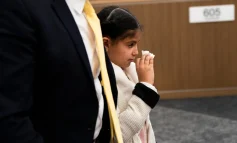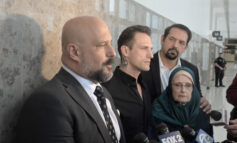NEW YORK – A total of eight car dealerships in Michigan have been named in a complaint filed by the U.S. Attorney in New York’s Southern District, alleging that they have been working with the Lebanese group Hizbullah, which is deemed a terrorist organization by the U.S. government, to funnel money into the United States and buy cars from other dealerships across the country.
A total of 30 dealerships were named according to WXYZ New York. The vehicles were shipped to West Africa and sold for cash according to that station’s report, and profits from the sales according to the complaint allegedly went to support Hizbullah, and similar organizations, which had been working with drug smuggling operations according to the DEA.
In total Lebanese financial institutions were alleged to have wired more than $300 million into America according to the complaint.
Speaking with Brian Ross of ABC, DEA Special Agent Derek Maltz said that dealership owners are being interview and served with restraining orders, along with the businesses.
Bank accounts from over 60 institutions are also reportedly being served with restraining orders, freezing bank accounts of those named in the complaint.
The eight Michigan dealerships have been named as: Eagle Auto Sales in Dearborn Heights, United Auto Enterprize in Redford, United Quality Auto Sales, Auto Rama, Global Shipping Services, H and D Export and Import and HH Automotive in Detroit, and A & J Auto Sales in Lansing.
According to Maltz, it is not clear yet if the dealerships knew that their sales were helping to aid the various groups named as terrorist organizations as the United States government has alleged. The investigation is ongoing and the agents have specific information on what the car dealers knew.
Another spokesman for the DEA told WXYZ the same and said that it is “entirely possible” that the some of the dealerships did not know who they were selling to nor did they know where the money was ultimately going.
Also targeted in the complaint were the Lebanese Canadian Bank and two Lebanon-based foreign exchange houses, the Hassan Ayash Exchange Co. and Ellissa Holding, in the alleged scheme to launder profits from narcotics dealing and other criminal activities.
Previously, charges have been leveled in similar cases against people of a Middle Eastern background in particular Lebanese Americans in Michigan and other states, however, none so far have been proven in the court of law, which has caused many local community members to receive such “overreaching” accusations with heavy skepticism to such charges.
Hizbullah denies charges
According an AFP report, the Lebanese group Hizbullah denied the charges on Thursday, Dec. 22 that they were involved in the money laundering or drug trafficking schemes as alleged by the United States.
“The United States’ allegations that Hizbullah is funding its activities illegitimately is merely another attempt to tarnish the image of the resistance in Lebanon … after the failure and exposure of U.S. intelligence operations in our country,” said a statement from the group as published by AFP.
“Hizbullah categorically denies the false charges of its direct or indirect involvement in money laundering, drug trafficking or illegal banking operations.”
Many believe a cold war has been heating up for months between Washington and Hizbullah, with the Shi’a group denouncing the planting of “spies” in its ranks and the United States accusing the movement of the illegal financial and drug dealings.
In June, Hizbullah chief Hassan Nasrallah revealed that members of his group had confessed to being CIA agents and slammed the U.S. embassy in Lebanon as a “den of spies.”
The embassy has dismissed the accusations as “empty.”





Leave a Reply